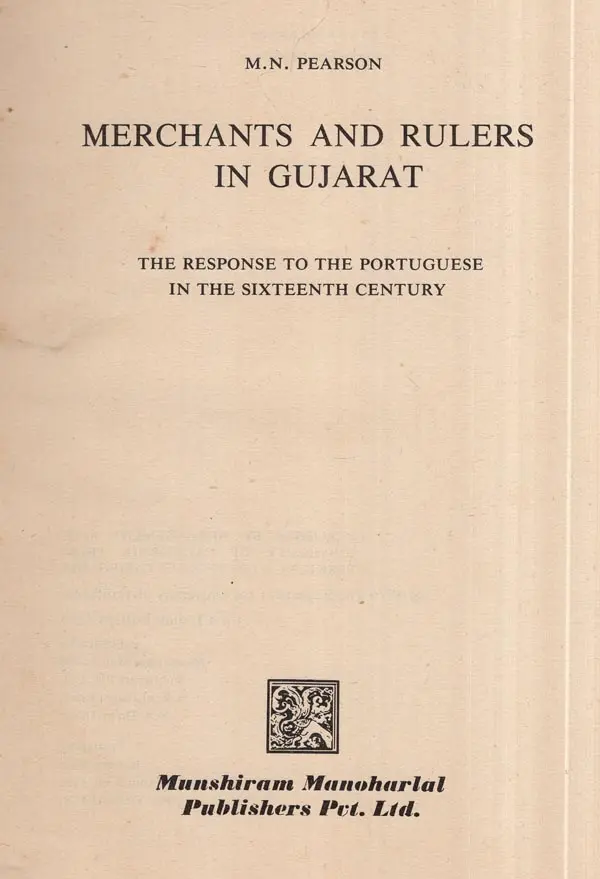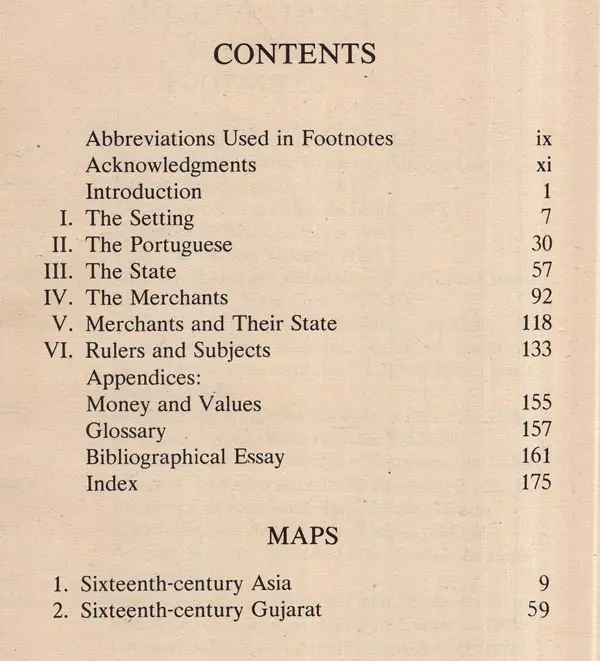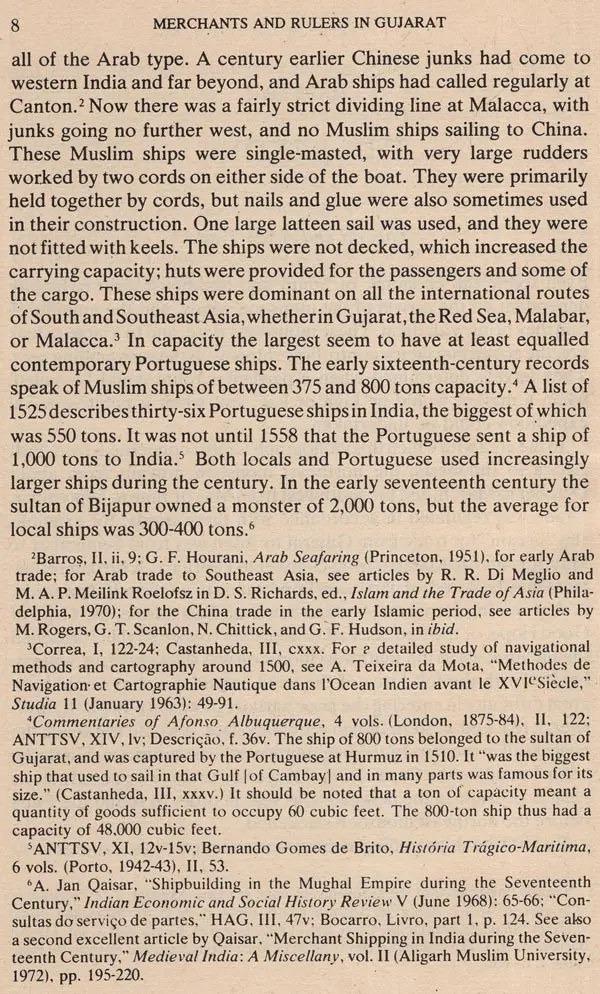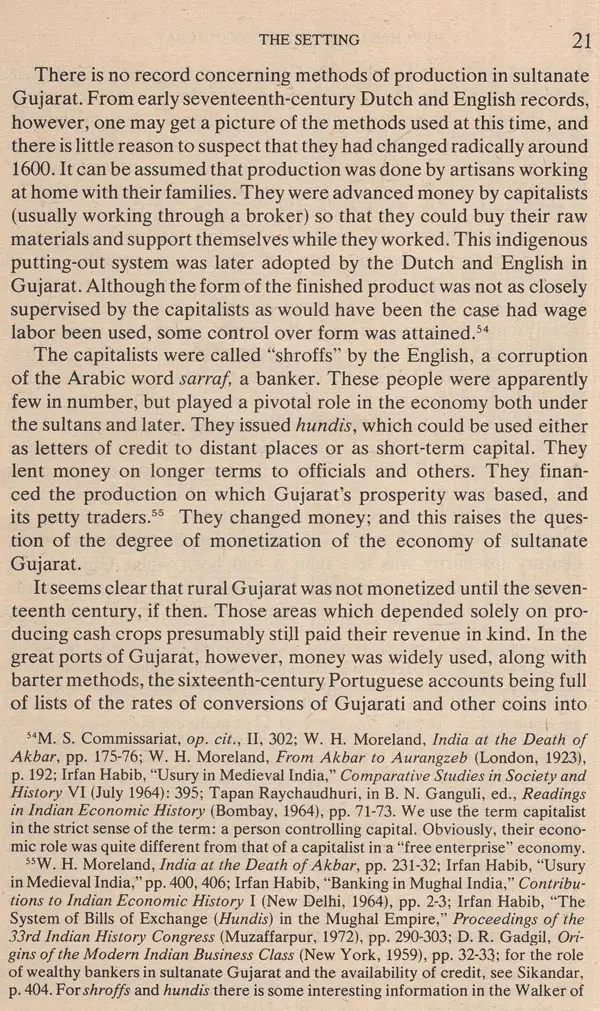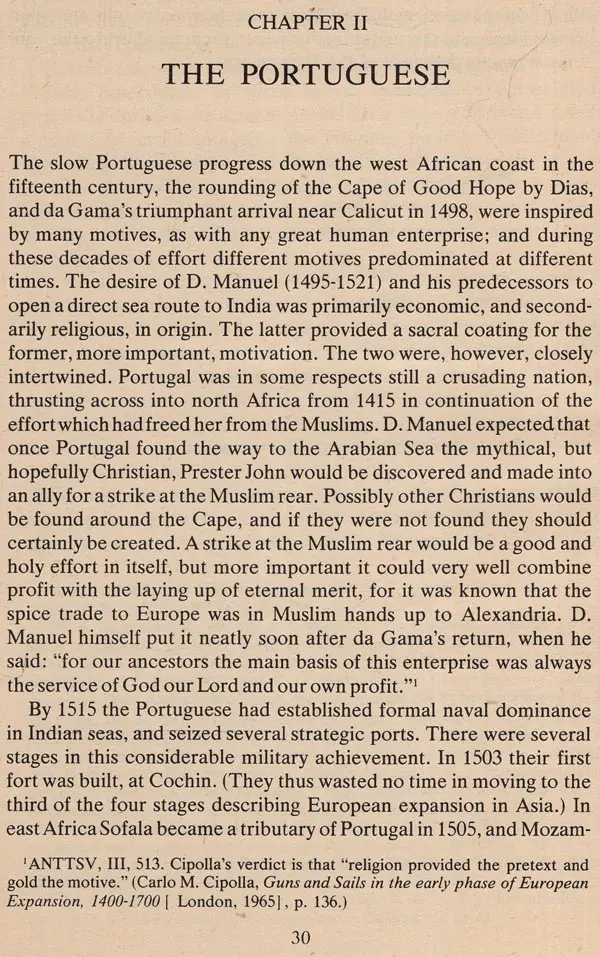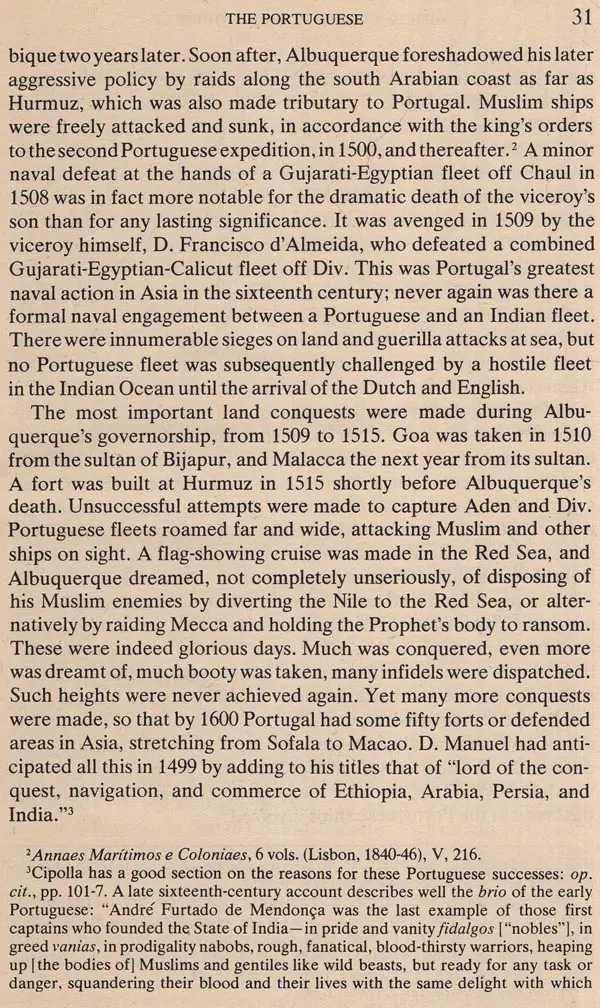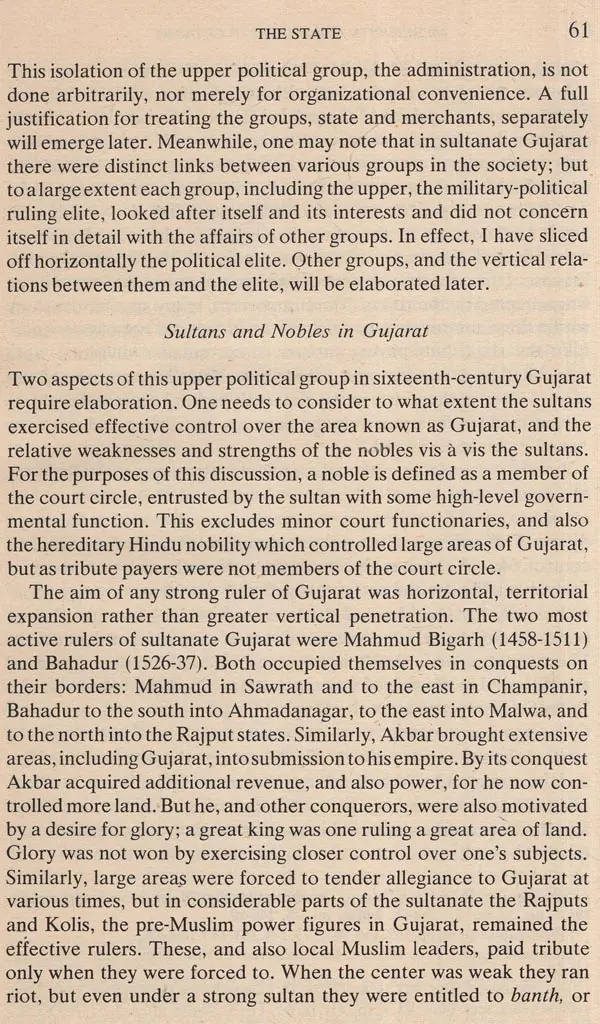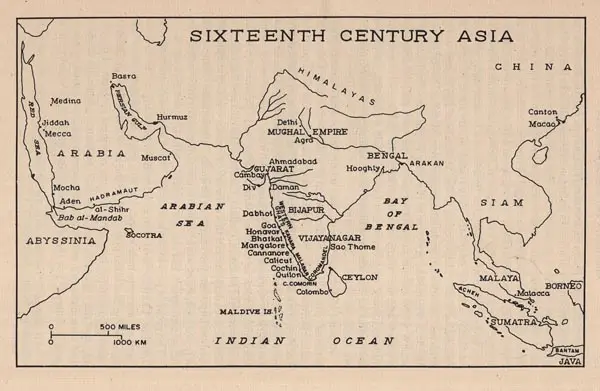
Merchants and Rulers in Gujarat (The Response to the Portuguese in the Sixteenth Century - An Old and Rare Book)
Book Specification
| Item Code: | UBF241 |
| Author: | M. N. Pearson |
| Publisher: | MUNSHIRAM MANOHARLAL PUBLISHERS PVT LTD |
| Language: | English |
| Edition: | 1976 |
| Pages: | 190 |
| Cover: | HARDCOVER |
| Other Details | 9.50 X 6.00 inch |
| Weight | 380 gm |
Book Description
Among historians of South Asia it is generally recognized that we know little about the activities of the Portuguese in the sixteenth century, and still less about the effects of their activities on the local population. An occasional plea is heard: "Why doesn't someone learn Portuguese and work in the Goa archives?" Yet it is ironic that most historians probably also feel that they can live with this lacuna. There are other gaps of more pressing significance in our knowledge. The general attitude is that the Portuguese never ruled large areas in India anyway. It is generally known that they failed to achieve control of the spice trade to Europe; if they failed here, where they tried hardest, then why bother with them at all? We can give them credit for being the first Europeans to sail to India via the Cape of Good Hope (though we all know that it was a Gujarati Muslim pilot who guided them across from East Africa to Calicut), but their real significance ends here. It was the people who followed them, the Dutch and the British, who were really important because they initiated the colonial period of Indian history. The beginnings of this momentous period are usually found in Surat in the early seventeenth century, or perhaps in the dynamics of Western European history in the late sixteenth century.
This monograph argues that neglect of the Portuguese is unfortunate for two reasons. Portuguese activities in the sixteenth century were not just an anachronistic "renaissance" prelude to the arrival of the "modern" British and Dutch. It is indeed arguable that the Portuguese in the sixteenth century had more "impact" on India than did the Dutch and British in the seventeenth century. During their first century in India, the northern Europeans simply merged into an existing commercial framework as two more groups of foreign merchants; there were ample precedents for such activities, for India had always been hospitable to foreigners come to trade. The Portuguese, however, were not like this. They had no intention of trading peacefully alongside the dominant Muslim merchants in the Indian ocean. They tried to monopolize some items of Asian trade, and direct and tax trade in all other products. Obviously they failed to enforce their grandiose design, but in one area, Gujarat, they came close to success: for most of the sixteenth century they did control and tax most sea trade from the Gulf of Cambay. The setting in which the Portuguese operated, the mechanics of their system, and the nature of contacts between Portuguese and Gujaratis, are set out in the first four chapters of this monograph.
To the historian of India the Portuguese presence is not of interest only because of their trade control system. When the angle of focus is reversed, the response to the Portuguese from Gujarat provides a fascinating case study of the nature of political connections in this medieval Indian society. It is argued that this response to a new phenomenon of trade control cannot be explained in strictly economic or military terms. In fact, the rulers of Gujarat could, with an extremely good chance of success, have pressured the Portuguese to end their system. But this they never wanted to do, because normally rulers did not care what merchants did.
**Contents and Sample Pages**
